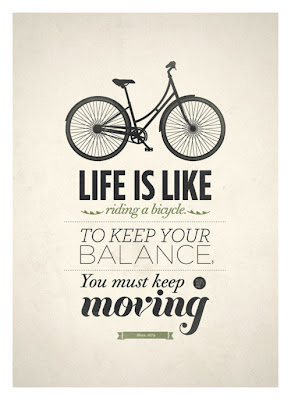We are witnessing a growing trend of addictions to what I would like to call demoralising desires and temporary pleasures.
We know of our purpose, we know of our
destination — so why do we continue to live for the dunya (this world,
as opposed to the Hereafter) as if it were our only goal and the real
essence of our existence?
This life is but a preparation for the next. We must focus on our destination and choose our paths wisely.
Yet we find ourselves
sitting in front of televisions, computer screens and game consoles,
investing our precious time
in unprofitable matters, and in many cases, haram exposure.
We waste
away our wealth in masking our insecurities and fulfilling a moment’s
thrill for a lifetime of debt. We are even shamelessly falling deep into
the culture of drugs and alcohol despite their clear forbiddance in the
Qur’an!
These addictions are paralysing the progress of our Ummah (
Islamic community), causing us to neglect our deen (religion) and preventing us from fulfilling our true goal as servants of Allah

, Al-Hakam (
The Judge).
Let us stop being an Ummah of ill habits. Let us change our course to a path that leads us to Allah

, In sha Allah.
Addiction: An Islamic Perspective
The term
addiction
is most commonly understood with respect to a chemical association —
the compulsive use and dependence on drugs, alcohol and nicotine.
While this does unfortunately exist in
the Ummah and is something we most definitely should aim to cease, I
want to speak more about those forgotten but most definitely dangerous
addictions that we shall refer to as soft addictions.
Soft addictions are those seemingly
harmless habits such as over-shopping, overeating, watching too much TV,
endlessly surfing the Internet, procrastinating etc. that keep us from
having the life we want.
❝ They cost us
money, rob us of time, numb us from our feelings, mute our
consciousness, and drain our energy. And we all have them. ❞ —Judith Wright, author of The Soft Addiction Solution
As Judith Wright described, soft addictions are those
habits that keep us from the life we want. Surely, as Muslims we want Jannah (
paradise) and
seek the pleasure of Allah 
alone. These addictions, however, distract us from fulfilling our true
purpose and goals in life. They have the dangerous potential to take us
away from the pure path of Islam, and slowly guide us to a path that
leads us to hell fire. May Allah

safeguard us.
From excessive use of the Internet,
mobile phones and television to the addictions of pornography, food and
shopping, behaviors such as these provide us with the opportunity for
immediate satisfaction. But as we know, everything in this world is temporary.
While we might engage in these
activities to pass time or escape reality, the satisfaction does not
last and we want it again. The immediate satisfaction we gain from these
acts can very quickly become a compulsive pursuit, and before we know
it, we are falling sinfully into the hands of shaytan (Satan), attaching
ourselves to the dunya and neglecting our Creator!
A Reminder of Our Purpose
Allah

reminds us many times in the Qur’an that this life is a test for us,
that we were made to worship Him alone and that we will be questioned on
the Day of Judgement. We should remind ourselves daily of the reality
of death and judgement.
Ibn Mas’ud

narrated that the Prophet

said:
“The feet of the son of Adam shall not move from before his Lord on the Day of Judgement, until he is asked about five things: about his life and what he did with it, about his youth and what he wore it out in, about his wealth and how he earned it and spent it upon, and what he did with what he knew.“ [
Jami at-Tirmidhi]
We must protect ourselves from becoming
servants to our desires, deceived by the world. We must learn to
recognise the difference between the absolute and the contingent, the
real and the fleeting.
The Real is gaining the pleasure of Allah  ,
a pleasure that will transcend into the afterlife. The Fleeting is the
attainment of self-pleasure, a pleasure that will remain contained in
the illusions of this temporary world.
,
a pleasure that will transcend into the afterlife. The Fleeting is the
attainment of self-pleasure, a pleasure that will remain contained in
the illusions of this temporary world.
And indeed the
Hereafter is better for you than the present (life of this world). And
verily, your Lord will give you (all that is good) so that you shall be
well-pleased. [
Qur'an: Chapter 93, Verses 4-5]
Changing For The Better
This life is but a preparation for the
next. We must focus on our destination and choose our paths wisely. So
let us recognise the growing problem of addictions within ourselves and
our Ummah, and aim to change ourselves for the better, In sha Allah.
Here I have broken down a simple 4 step plan to help you battle those
addictions.
On the Day when
every person will be confronted with all the good he has done, and all
the evil he has done, he will wish that there were a great distance
between him and his evil. … [
Qur'an: Chapter 3, Verse 30]
Step 1: Keep A Diary
Look deeply into your daily routine and
note down what you do and how much time you spend doing it. What did you
do? When did you do it? Where were you? Who were you with?
Step 2: Time To Reflect
Now that you have your journal, it is time to reflect and refocus.
Take some time to read through your
diary and highlight any bad habits or things that you would like to
change in your day. It is all about identifying the need, or even the
space for improvement, and most importantly recognising your soft
addictions.
We cannot stop an addiction or bad habit until we recognise it to be a problem to begin with.
Maybe you notice that you spend a lot of time playing video games or
watching television. One may find one is engaging in haram activities
such as watching pornography or smoking. However small or large they may
be, make a list of all the bad habits you are engaging in. You may want
to then categorise them to help you better organise your priorities.
Tip: Your priority
should be first and foremost to eliminate anything that you do that is
haram. Second are those activities you engage in the most often or most
time-consuming that are not necessarily beneficial (your addictions).
Finally, those habits that you would benefit from removing or replacing.
Once the bad habits and addictions are identified and categorised, we can begin to
make a plan
to tackle them productively. It can be a little overwhelming when you
have a list of habits you want to change but no idea how to do it! So,
here is a simple tool you could use to break it down into
an effective plan.
Researchers have found that behind every habit, there is a neurological loop consisting of 3 parts: A routine, a cue and a reward. If we can identify these, we can better target and prevent bad habits.
- The Routine is what you have already done in steps 1 and 2 above — identifying addictions or bad habits.
- The Cue is what leads you to engage in the habit. By identifying this, you can be prepared for the habit or even avoid it.
- The Reward is what you essentially gain from
engaging in that habit. By identifying this, you can search for
alternatives — healthier activities to replace the bad routine, one that
will essentially give you the same reward.
So from the habits you listed in Step 2,
think about the cue and reward behind each habit. You can use the handy
table below to identify these 3 parts of your habit loop and then come
up with a plan on how you can change, prevent or replace your habit. I
have included some examples for you:

Tip:
By replacing a bad habit with a healthier alternative that gives you
the same reward, you are more likely to remain steadfast as you will not
feel a sense of loss because what you seek is achieved through the
healthier habit.
Work through your table one by one, do
not overwhelm yourself with trying to change too much at once. Start
with the first habit and only move to the next when you feel you are
gaining more control over the first.
Step 4: Remind yourself
To successfully tackle your addictions,
you must regularly, in fact, constantly remind yourself of your purpose
and the reality of death and judgement. It is important to have daily
reminders to help keep you focused and disciplined.
Personal Tip: I find
the most effective reminders for me are attending regular Islamic
classes or spending time in the company of pious and inspiring people. I
also find leaving little motivational quotes on sticky labels around
the house useful!
I hope this article has been useful
to you. Why not use the diary and habit change plan templates and try
out these tips for yourself? Let us know if these tips have worked for
you by sharing your experiences and your personal tips in comments
below.
Source:




 said:
said: of the Prophet
of the Prophet  having a good character is.
having a good character is. 
 narrated that the Prophet
narrated that the Prophet 



